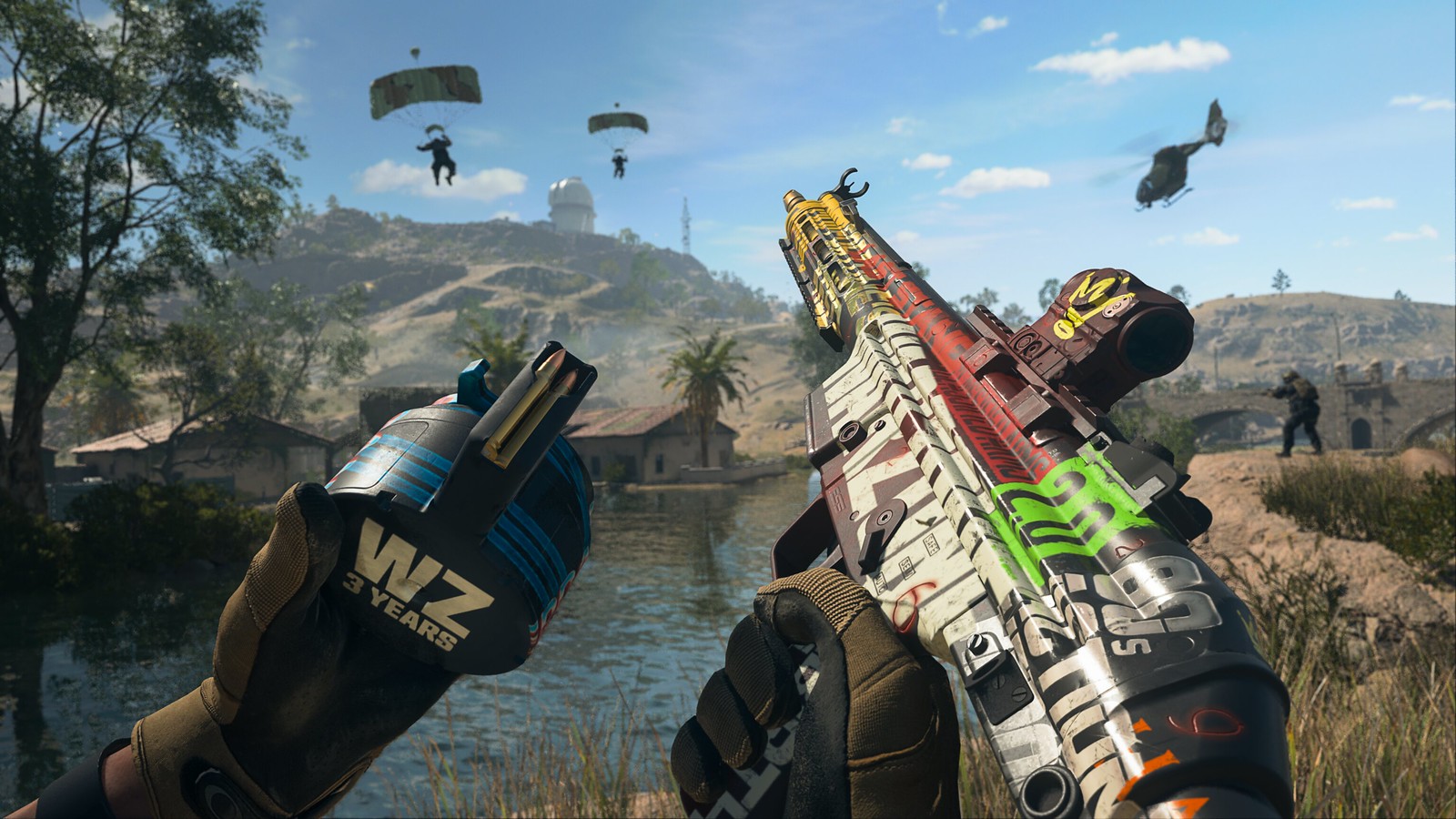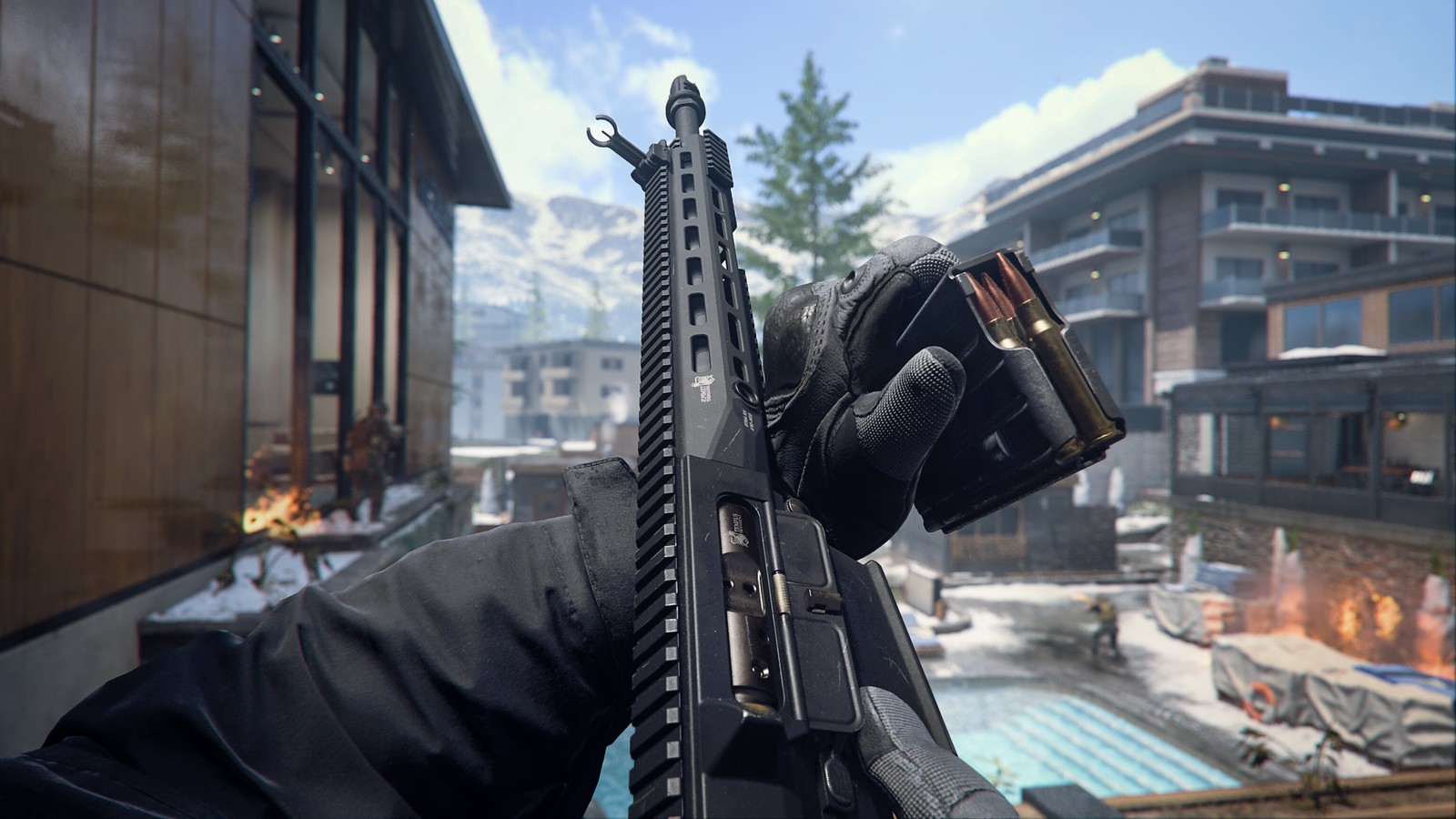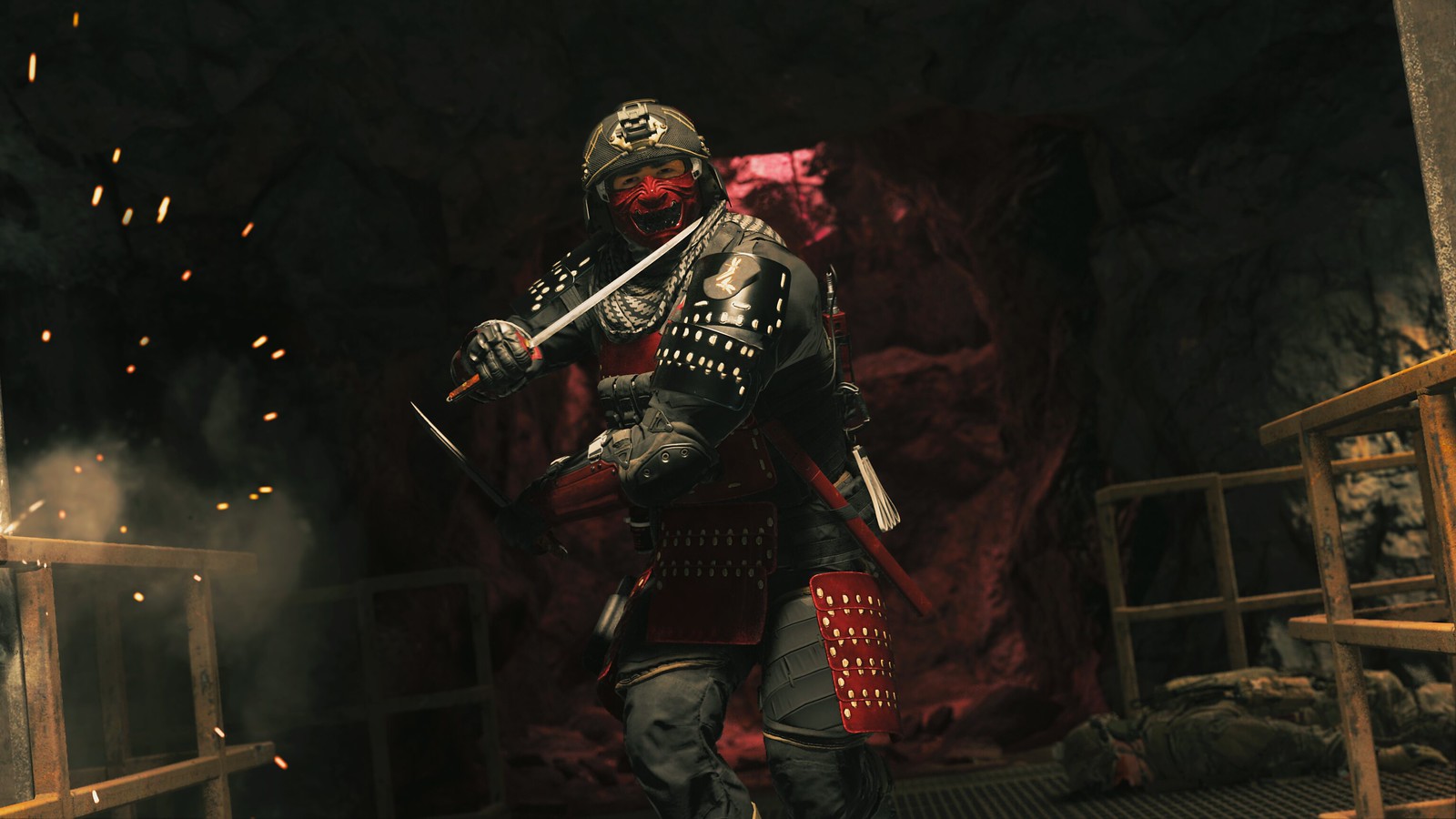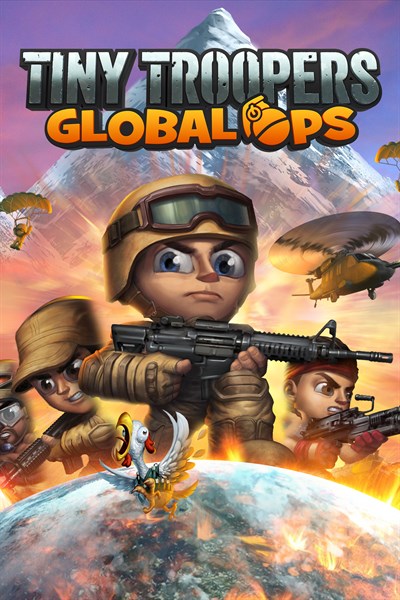In 2008, a handful of frustrated developers at a tiny, Quebec-based Ubisoft subsidiary (of sorts) called Longtail Studios led a valiant, if doomed, unionization attempt that was well ahead of its time.
In recent years, unionization in the games industry has become a hot topic. Multiple games companies have unionized, either in part or as a whole, and the overall attitude toward unions industry-wide (as measured by the annual Game Developers Conference survey, at least), has slowly become more positive. This wave of interest in unions comes as a possible solution to growing concern about games industry working conditions, amid reports that multiple major AAA companies foster toxic work environments, crunch lasting weeks or even months, and hostile conditions for women and minorities. And while some major companies like Activision-Blizzard have been openly hostile toward such efforts, others, such as Microsoft, have been surprisingly permissive.
But it wasn’t always this way. IGN spoke to seven sources familiar with the story of Longtail Studios, six of whom were involved in some way with a unionization drive at the studio in 2008-2009. Despite their movement’s ultimate failure at the time, those we spoke to feel that Longtail’s story is worth telling, both as a clear example of why worker protections might be desirable in the games industry to begin with, as well as a testament to how far unionization in the space has come in a short amount of time.
Ubisoft declined to comment on this story.
Ubisoft, But Not Quite
Longtail Studios was founded in 2003 by Ubisoft co-founder Gérard Guillemot. It was initially based in New York City, but soon after spun up two satellite studios: one in Quebec, and later, another one in Prince Edward Island, which eventually moved to Halifax. For the first five years of its existence, Longtail was a tiny studio of less than 100 employees focused on early mobile and DS games such as Sprung, Heartbreakers, My Bridezilla, Hollywood Hustle, and TNA Wrestling. Later, it expanded into console games, beginning with Grey’s Anatomy: The Video Game in 2009 for the Nintendo Wii, and later still moving into Wii U development with ESPN Sports Connection and Rocksmith 2014.
Though not officially affiliated with Ubisoft, Guillemot’s Ubisoft funding and familial ties to Ubisoft CEO Yves Guillemot kept it close at hand to the much larger French studio. In many ways, Longtail was like a second Gameloft: founded by a Guillemot brother, largely funded and run by Ubisoft’s friends and business partners, and focused on the mobile market that Ubisoft proper had not yet gained a strong foothold in. Ubisoft officially published a number of Longtail-developed games, but the day-to-day ties went much further than that. Longtail’s Quebec production studio shared a building with Ubisoft Quebec, and sources tell me Ubisoft leads would often come and go from the Longtail office. The two companies even shared a Christmas party at least once. One source who worked there at the time described it as “Ubisoft with a different name.” Multiple sources recalled early pay stubs stemming from Ubisoft, not Longtail, before it eventually switched, and one source shared their original job offer letter with IGN, signed off on by “Estelle Jacquemard, Ubisoft Entertainment Inc. Quebec, Projet Longtail.”
“Between us, we would describe [the relationship between Ubisoft and Longtail] as ‘incestuous,’” one source recalls. “We were often reminded by management that Longtail and Ubisoft were two different companies. They would get angry if we referred to Longtail as Ubisoft and we were forbidden from saying we worked for Ubisoft. But, we were paid through Ubisoft in the beginning (I don’t remember when it stopped), we worked in the same building (different floors), shared some equipment, and the owner was one of the Guillemot brothers (Gérard). We also developed some games for them (Grey’s Anatomy and a few titles in the Imagine series).”
Sources who worked at Longtail during these early years recall an often-frustrating work environment. Decisions, they say, were largely made by creatives at Longtail’s New York office, who then expected Longtail Quebec – where most of the programmers, artists, and designers were based – to execute. They described little to no opportunity for upward mobility within the company, and very little training or guidance from more senior individuals – something that proved stressful for a studio largely composed of young, inexperienced developers just getting their start in the industry.
Many of the workers, multiple sources told me, weren’t trained to make the kinds of things New York was asking for, and these large, challenging, or even impossible asks often came on tight turnarounds, resulting in crunch and delays. Two sources recalled that as time went on, this relationship resulted in Longtail becoming fraught with infighting, with one programmer describing the environment as follows:
“Game designers were told that programmers were lazy and incompetent, so they shouldn’t listen to us when we said that what they asked was costly, time consuming, or sometimes even impossible on the hardware we were targeting,” they recall. “They were expected to push for what they wanted (or what their boss wanted) using every argument they could to make it happen, including twisting our own technical arguments around and questioning our competence. When the result was (predictably) a barely playable mess, we would get blamed for it.”
Others in different departments, such as QA, said their workload was more variable, with periods of crunch closer to deadlines interspersed with long stretches of little to no work. One recalled groups of QA testers playing Warcraft, StarCraft, and Unreal Tournament in the office, saying, “This was the weirdest job I ever had.”
This was the weirdest job I ever had.Since the ‘90s, Quebec has offered significant tax credits for multimedia businesses set up in the province. It’s a financial plan that Ubisoft had a major hand in forcing through, and has been a significant factor in Quebec becoming a major game development center globally. It’s been a historically controversial program in the province, and at Longtail it sparked a lot of speculation. Among those involved in Longtail’s unionization, there was a widespread suspicion that Ubisoft had largely set up Longtail to take advantage of these government grants and tax credits rather than because it needed a new studio to make games, all while failing to invest that money back in the studio. Multiple former employees recalled signing papers for a government organization called Emploi Québec – which offers grants to companies in exchange for providing specialized training to workers. The paperwork, they remembered, was effectively a statement that the workers had received training on the job to improve their skills, but none of those we spoke to recalled receiving any such training.
Across the board, pay at Longtail Studios was rather dismal. While everyone I spoke to agreed that programmers were paid roughly an acceptable living wage for Quebec at the time (one programmer told me they were paid about $40,000 CAD), all other roles were drastically underpaid, and raises were hard to come by – especially for QA, who made close to minimum wage (in 2008, roughly $17,680 CAD a year). One person told me their first role after leaving the games industry doubled their pay, with no expectation of overtime. Another reported being promoted out of QA into a designer role and not getting a raise, and thereafter receiving annual raises much lower than the rest of the designers even when their performance evaluation was positive. And another source recalled being offered $30,000 CAD a year to move to Quebec from another city, only to find when they had arrived that their offer had mysteriously dropped to only $19,000 CAD a year. Since they had already moved, they had no way of fighting the change. That said, several agreed that the health benefits at Longtail were quite good.
Whatever was going on behind the scenes, there was a pervasive belief among my sources that Ubisoft had founded Longtail not because they were interested in making good games or building a sustainable studio, but first and foremost as a way to receive additional funding from the Quebec government and ultimately funnel money back to Ubisoft. They felt strongly that the relationship between Longtail and Ubisoft was questionable at best, and that the studio conditions were neither healthy nor sustainable – especially when compared to the wider games industry.
A Longtail Union
With poor working conditions, insufficient pay, a stressful environment, little transparency, and seemingly no change in sight, a handful of Longtail employees sought other solutions. In 2008, a pair of individuals began reaching out individually to their coworkers in an effort to convince them to start a union under Quebec’s Alliance de la Fonction Publique du Canada (AFPC). One of them, Mathieu Lemire, was initially hired as a young, green QA tester and was later invited to join the game design team. The other, Boris Perron, was a programmer, and one of the older and more experienced employees at Longtail. The two quickly became the leaders of the movement within Longtail, and became known around the studio for being vocal about working conditions and issues at the company. IGN spoke to them both, and both agreed to be named in this piece.
“I knew I would have to fight in order to get any respect and fair work conditions,” Lemire says. “Unionization was the only way I could successfully gain something, for me and for others who were like me. In order to fight in equal terms against a company far stronger than any individual, you have to organize and do this together. With a union, you can negotiate and even organize a strike without being completely obliterated. If you try anything by yourself, any company exploiting you can just say, ‘No,’ and ‘You’re fired.’ I knew I could not do this by myself, so I seized the opportunity.”
Lemire and Perron connected with then AFPC-representative Jean-julien Mercier, who also spoke to IGN and agreed to be named in this story. The three split the task between them, with Perron focusing on the programmers, and Lemire trying to bring in the designers, artists, and QA. Mercier, hoping to avoid rousing suspicion that either was involved, visited a number of Longtail employees at home to get them to sign union cards. The group made good progress for a while, seeing a lot of interest from the programmers and artists especially, but Lemire describes the response from QA and game design as “anemic.”
In 2008, technology businesses were vastly hostile to unionization. In the video game business, it was even worse than that.“They were scared like crazy and nobody wanted to sign a card,” he says. “In 2008, technology businesses were vastly hostile to unionization. In the video game business, it was even worse than that. Everybody was afraid of losing their job.”
As the two continued their efforts to speak to their colleagues one by one, problems began to arise. Lemire expressed that he grew frustrated with Mercier, who he didn’t perceive as providing clear guidance or direction. Mercier, however, tells me that at the time he was still very new to the job, with a young child at home, and was doing the best he could. And at some point amid this struggle, Longtail management got wind of what was going on. Lemire and Mercier both suspect that a specific individual they approached to sign a card ultimately outed them to management — a suspicion that would later be confirmed at least in part at Lemire’s trial in 2010 when one of the leads from Longtail New York testified he was tipped off to the union attempt by an employee.
Lemire and Perron’s involvement would only be further confirmed to Longtail management when, in late 2008, they appeared on a public television program in Quebec discussing unionization in the games industry (above). Lemire recalls that those in charge of the program listed on their website that he worked for Ubisoft, despite him asking them not to include that information, but the damage was done. Someone at either Ubisoft or Longtail noticed, and Lemire recalls being called into the director’s office and being scolded severely – initially for inaccurately claiming he worked at Ubisoft, and then as the conversation went on, for discussing industry working conditions without their consent.
Perron was a bit luckier, as roughly around the time the segment aired, he found a job elsewhere and left Longtail, leaving Lemire to spearhead the movement alone. But not long after, the worst happened: Lemire was fired.
Longtail, Folded
Officially, Lemire was fired for poor work performance, but its occurrence so soon after the television appearance and Longtail catching wind of his efforts was regarded as suspicious by everyone I spoke to. Initially, Lemire accepted his defeat quietly, but what happened the following month spurred him into further action.
All throughout 2008, Longtail Studios had been restless – new projects had dried up, and employees were worried about the studio potentially closing. One lead I spoke to recalls being told after Lemire was fired that his dismissal was an isolated event and all other jobs were safe. But in December of 2008, roughly a month after Lemire was fired, Longtail underwent layoffs. From its peak of roughly 80-100 employees, Longtail eliminated 38 positions, approximately half of its then-current staff, including a large number of those who had been involved in the union efforts, and almost its entire art team.
At the time, Longtail claimed it was due to the economic crisis and a lack of game sales. Employees who were there recall the announcement being short, with no chance to ask questions, and a list of names hung up on the wall to indicate to employees who had lost their jobs. One lead told me they were given no input on who was let go, and were only told five minutes beforehand that the layoffs were happening. Those who were being laid off were given eight weeks, per Quebec laws on collective dismissals, and stayed with the studio wrapping up one last project through the start of February. Then they were gone.
“The Christmas party that year was…something,” recalls one employee who survived the layoffs. “The layoffs were announced in December and the people that were losing their jobs were still invited. It wasn’t an open bar, but there were plenty of booze tickets and they had rented those carnival games where you punch a target and it measures your strength. People got extremely drunk and at least one guy broke his hand.”
The following April, Ubisoft posted a 14% year-over-year sales increase for the prior year, with CEO Yves Guillemot saying the company had “the second best profitability among comparable companies in its industry.” Its casual games business grew 40%, with the company hiring roughly 1,300 new employees in the interest of “preparing for the next generation of handheld as well as home consoles.”
Mercier notes that prior to the layoffs, over 35% of the eligible studio members had signed union cards, which in Quebec is enough to force a full studio vote. He says they had been delaying in hopes of getting over 50% to sign, which would automatically grant Longtail a union without a vote. But not only had Longtail lost its two union leaders, the layoffs had mysteriously impacted every other strong supporter of the union effort as well.
“They cut our head off,” Mercier recalls. “We didn’t have any strong supporters anymore. I was left with nearly starting again to zero, but the conditions never materialized to let the campaign run again…They wanted to make sure that the cancer couldn’t grow.”
Without Perron or Lemire, with their headcount decimated, and fear of retaliation higher than ever, this was the final nail in the coffin of Longtail’s union efforts. Longtail, such as it was, briefly soldiered on. The Quebec studio was formally folded into Ubisoft the following year (a move that also resulted in a few more employees being laid off), and development efforts within Longtail itself shifted primarily to its Halifax location…which was then also folded into Ubisoft in 2015. The ultimate absorption of Longtail happened just as its sister studio Gameloft was gobbled up by Vivendi amid Vivendi’s attempt at an Ubisoft takeover, and may have been a preventative measure to keep the same thing from happening in Halifax. It’s unclear what happened to the New York branch of Longtail Studios – presumably it was shuttered or similarly wrapped up into its informal parent company, as the last game released by Longtail Studios, Trivial Pursuit Live!, came out in 2015 and Longtail’s website ceased to function in late 2018.
A Last Ditch Effort
But even after their efforts failed, Lemire, Perron, and several others rallied one last time to hold Ubisoft and Longtail accountable for their treatment of employees. When Lemire learned about the layoffs in the wake of his firing, he was inspired to try and rekindle the unionization flame, if not at Longtail, then elsewhere in the industry. So he filed a claim against Longtail with the Quebec Commission des normes de travail, alleging he had been wrongfully terminated for unionization activity.
“If we could just raise awareness, maybe catch the attention of the government or some journalists, we could still get something from this fight and maybe even inspire other workers from the video game business to fight for their rights and dignity,” Lemire tells me. “At that point, I wasn’t even expecting to win. It would have been a bonus, but my objective was to raise the curtain on the abuse in the video game industry.”
But Lemire wasn’t the only one who took Longtail management to court. A group of laid off employees also banded together for multiple other cases in the same court, though theirs alleged wrongful termination rather than termination for unionization specifically. Multiple employees who were involved recalled receiving emails from a government program specifically designed to help those recently laid off find new positions, advertising their own exact jobs back to them. One source sent IGN a copy of a job posting they were sent by Emploi Quebec, which provides assistance to those impacted by collective dismissal. The job posting was the exact same job they had just been laid off from at Longtail.
I wasn’t even expecting to win…my objective was to raise the curtain on the abuse in the video game industry.But as before, Lemire and his colleagues’ push for accountability quickly unraveled. Mercier recalls asking AFPC if they would provide legal representation, but his request was denied. As a last ditch effort, he opted to represent Lemire himself, but admits to me that he had little experience and struggled to put together a case due to Lemire’s history of being outspoken in the workplace. Longtail claimed Lemire was incompetent and a poor employee – though multiple other employees I spoke to pointed out to me that Lemire’s conduct had seemingly been tolerable to Longtail until the union situation arose. The judge, admitting he was unable to assess whether or not Lemire had been competent at his job, gave Longtail the benefit of the doubt and ruled in its favor. Lemire’s case was crushed, but he hoped his trial would at least inspire the cause of his former coworkers.
His hopes were in vain. Lemire’s loss took the wind out of the others’ efforts, and Mercier told one of their group that because it was classified as a collective dismissal, he had no argument he could present the court in their favor. He filed initial paperwork on their behalf, but then declined to be involved further, a move that left many of those I spoke to feeling bitter and hurt. Lemire tells me he called Mercier after he left, telling Mercier he had betrayed him and the others, and that Lemire would never forgive him. The two haven’t spoken since.
“It’s painful to me,” Mercier recalls. “They were very good people, but unfortunately I was left with no option. We didn’t have any legal arguments. They played the anti-union playbook properly. It was seriously one of the worst moments of my career, and I do believe it’s still the worst moment of my career, having to look these people in the face and tell them that I could do nothing.”
With Lemire’s loss and Mercier gone, most of those involved in the case gave up, but one stuck it out all the way to trial. It was there that Longtail, fully funded and represented by large Quebec law firm Langlois Kronström Desjardins, claimed that the layoffs were a lawful collective dismissal. Per trial documents seen by IGN, Longtail argued that Canada was feeling the effects of the 2007 global financial crisis, and with game development moving more and more toward 3D worlds, its Longtail teams of mostly 2D developers and artists – which had made up the bulk of the layoffs, if not all – weren’t able to keep up. Mobile games, it said, weren’t profitable. It was pivoting back to console.
It’s still the worst moment of my career, having to look these people in the face and tell them that I could do nothing.The remaining employee argued back, pointing out that many of the positions (such as UI artists) were relevant in 3D development and their skill sets were still useful. They claimed that they were terminated not due to the economy or their skills, but due to “corporate restructuring and business reorientation,” saying that their team in particular was targeted for “having a negative attitude.” They noted that because Longtail was rehiring for the same role, it hadn’t been necessary to terminate them. But Longtail denied these claims. The judge pointed out that Longtail hadn’t explicitly hired anyone to replace the employee in question, saying their suspicions were insufficient. Without a lawyer, a “preponderance of evidence,” or funding to press the matter, the second complaint was also lost.
Following their dismissal and the trials, multiple sources I spoke to said they struggled to find work in the games industry in Quebec. Several believed that word of their unionization attempt and subsequent court case had spread in the local industry, discouraging companies from hiring anyone involved. One person I spoke to who left of their own accord after the layoffs told me that when they told their manager they were leaving, the manager explicitly told them that if they wanted to, they could stop them from getting another job in the industry. All but one of the people I spoke to for this piece left the games industry for good in the years immediately following their departure from Longtail.
The Unionized Future
The story of Longtail Studios is a sad one, and not exactly encouraging at a time when unionization efforts across gaming are ramping up as workers push for better conditions industry-wide. But one hopeful note that struck me while writing this was that despite their struggles and ultimate loss, my sources still fundamentally believed that games industry unions were not just possible, but critical to a better future for the industry.
“Years later, I still think this was the correct thing to do,” one source said. “In fact, I could not do otherwise. Too many employees had poor conditions to be tolerated. Unionizing could also have been a way to expose all the corruption in our government and in Longtail/Ubisoft by forcing a more transparent budget. We should always fight against corruption and exploitation, no matter what the circumstances are. When facing unethical big businesses and shady government deals, unionizing is the only way to keep the forces in balance. It’s true that we suffered heavy losses when doing so, but there are lessons to learn from this. So yes, I would still encourage others to unionize for themselves and for others.”
Years later, I still think this was the correct thing to do. In fact, I could not do otherwise.One especially heartening note came from my original source. In their initial email to IGN, they told us they were inspired to mention their experience at Longtail because they had heard about Microsoft’s recent messaging around taking a “neutral approach” toward a possible Activision-Blizzard union (should the acquisition go through), and its later voluntary recognition of a ZeniMax QA testers union and ad in the Washington Post expressing the positive impact of unions. While there is never a guarantee Microsoft might not change its mind down the line, my source was astonished at how the narrative had changed in a decade and a half.
“In hindsight, I dunno…at the time [unionizing] just made sense. I was making around $30,000 CAD a year when the North American average was almost double,” they told me. “We knew that the salaries were paid in part by the government (public funds) and we just wanted to have good conditions and be paid fairly. Conditions weren’t bad, but it just made sense to protect what we had. It was frowned upon when you said, ‘No’ to overtime, those types of situations had to go away. I regret signing that card in a way.
“That’s why when Microsoft said that they were okay with their studios unionizing it’s HUGE news! That’s a giant company saying it’s okay. Big corporations, ahem, game companies don’t like it when they don’t make tons of profits. They don’t really care about employees. They care about profits. I love the people that work at Ubisoft, many are still friends. I absolutely despise dishonesty and exploitation. I lost my career. I’m still affected by it and I’m still crying everytime I talk about it. I’m mad crying.
“I don’t want anybody to go through this because they tried to unionize. They shouldn’t be scared of it. I want to encourage the whole industry to talk about it out in the open. Make it normal! Unions were created for a reason! Better conditions and a fair slice of the pie.”
Interviewee responses have been lightly edited for clarity.
Thank you to Erwan Lafleuriel and IGN France for providing translation on all French documentation for this piece, and thank you to Vincent Chevarie and Renaud Loiselle Dupuis at Au bas de l’échelle for their assistance in interpreting Quebec labor law.

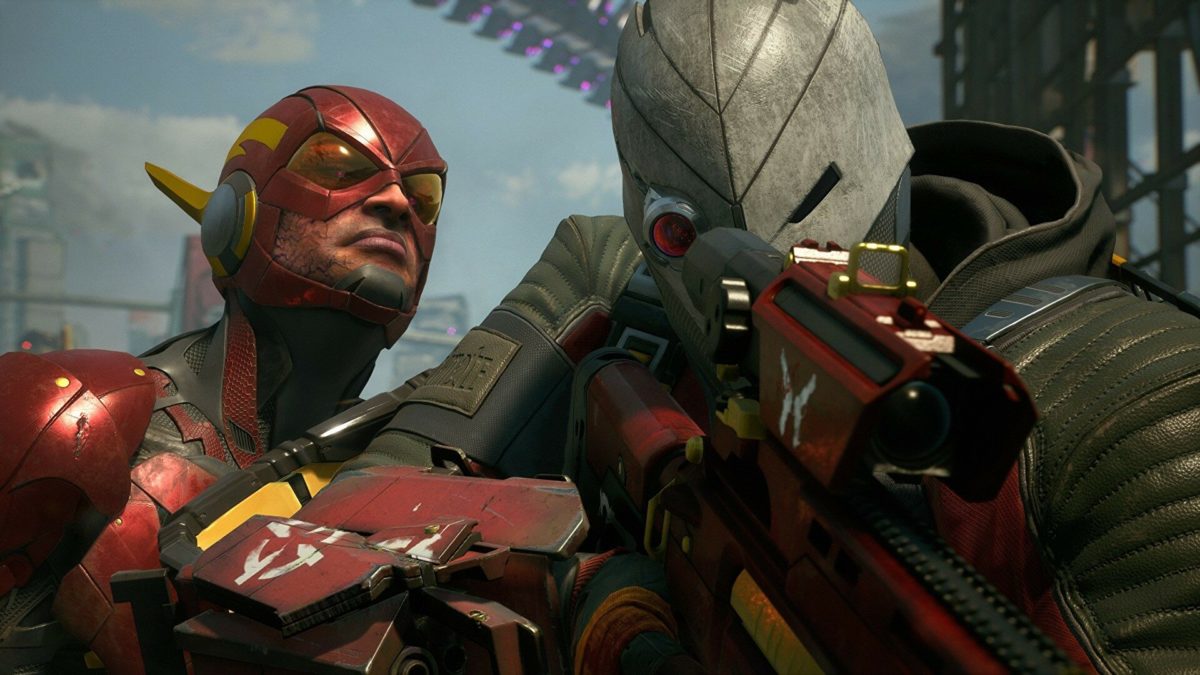
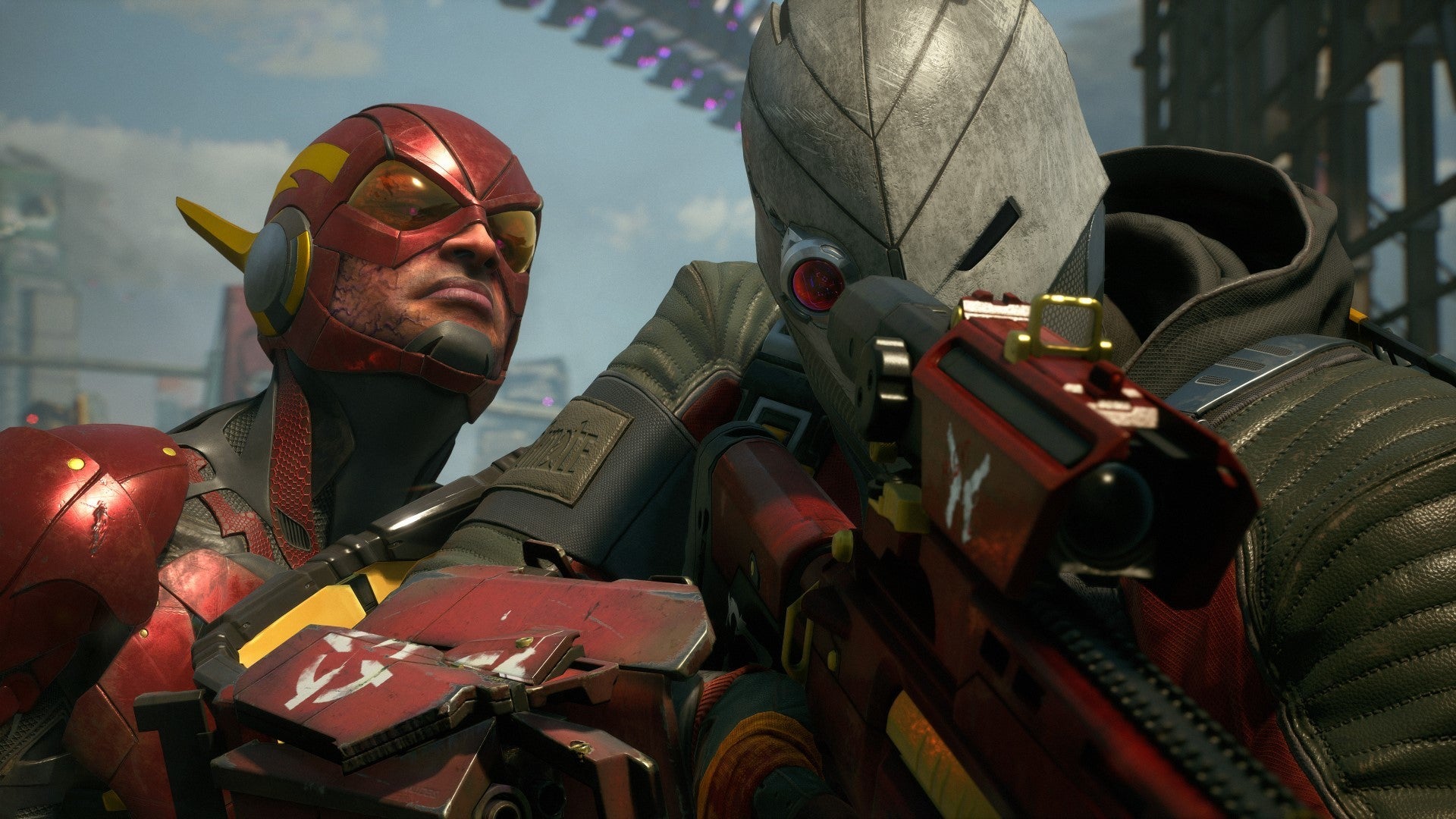 Suicide Squad: Kill The Justice League was recently shown in
Suicide Squad: Kill The Justice League was recently shown in 











